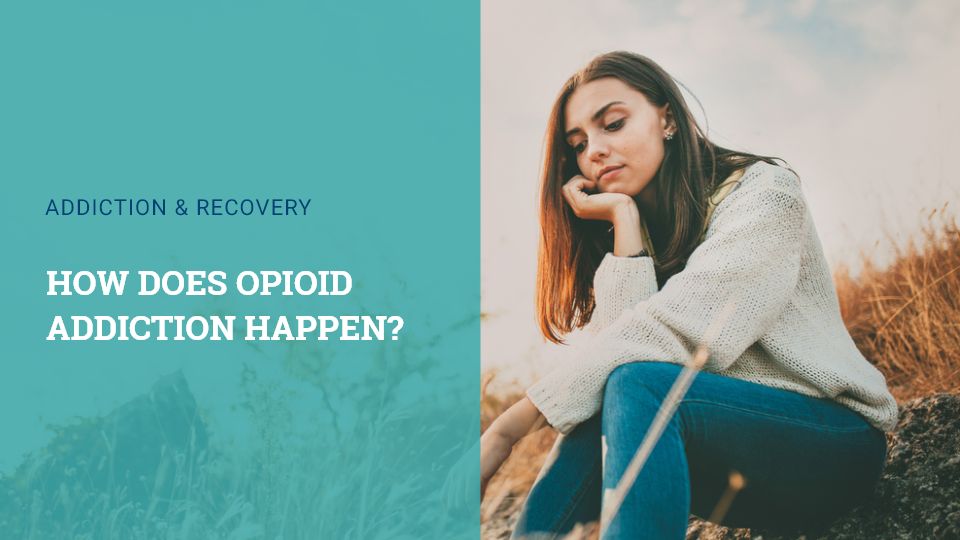Pinnacle Treatment Centers, based in Mt. Laurel Township, New Jersey, has announced that they have recently published a blog post that focuses on opioid addiction. The article is titled, “How Does Opioid Addiction Happen?” and explores how an opioid addiction develops, symptoms of the addiction, and how to reduce opioid dependence. The risk of opioid overdose is also something to watch out for as the body can build up a tolerance to the drug. There are also a number of signs that can indicate an opioid overdose and these are discussed in the article.
Melanie Eilers, Senior Director of Communications at Pinnacle Treatment Centers, says, “Opioids are a class of drugs used extensively in pain management due to their ability to bind with opioid receptors throughout the body. The opioid receptors in your body regulate a multitude of functions ranging from pain, addiction, emotional state, immune function, etc. The very act of synthetically interfering with these receptors is fraught with risk and can throw the body into an imbalance that may result in a dependence on the drug.”

She continues, “Opioid use disorder stems from the very nature of the drug and the strong effect it has on the mind and the body of the individual. While pain management is the initial need, the onset of depression and physical dependence on the drug can quickly take hold and create a vicious circle of addiction.”
It should be pointed out that there is no such thing as safe usage of opioids because the addictive properties of the drug are so strong. Once an opioid is medically prescribed, it is essential to follow the doctor’s instructions and to be mindful of any symptom of addiction and side effects.
There are a number of common risk factors that make it more likely for certain individuals to develop an opioid addiction. These include socioeconomic conditions, underlying psychiatric conditions, age and maturity level, history of substance use disorder, and past history of trauma. Signs of opioid addiction to watch out for include social isolation, changes in diet and energy levels, neglected personal hygiene, erratic behavior, changes in mood and emotional state, mismanagement of finances, irresponsible behavior towards daily commitments, altered sleep patterns, and criminal behavior.
Meanwhile, there a number of signs of opioid overdose. These include restricted blood flow resulting in blue fingertips and lips; limp and unresponsive person; shallow breathing and slow heartbeat; and involuntary nausea and vomiting. Those who notice some of these signs in a loved one should seek medical health as quickly as possible.
The problem with opioid addiction is that it simply stopping its use is usually not possible after a prolonged period of using it. Withdrawal symptoms are likely to be experienced when stopping the use of opioids. These symptoms can be extremely painful and excruciating and even death can occur if the symptoms are not managed properly through a medically supervised detox and maintenance procedure.
Gradual steps can be taken by people to slowly ween themselves off of opioidsi if there’s no full-blow physical dependence on the drug. These include: setting and complying with strict limits on usage; closely monitoring usage; occupying the mind and body with hobbies and sports; seeking help from family and friends; seeking professional help from an addiction specialist; and avoiding temptation and keeping a positive mental attitude.
Pinnacle Treatment Centers has developed a reputation of being a leader in comprehensive alcohol and drug addiction treatment and is currently serving over 28,000 patients everyday in California, Kentucky, Indiana, Ohio, New Jersey, Virginia, and Pennsylvania. They have over 110 community-based locations, offering a full continuum of quality care for adult men and women. This includes medically monitored withdrawal and detoxification management, partial hospitalization or care, inpatient or residential treatment, sober living, medication assisted treatment for opioid addiction, and intensive and general outpatient programming.
People who are interested in treatments for opioid addiction provided by Pinnacle Treatment Centers may want to check out their website or contact them through the phone or via email.
Over 10000 people recovering daily through proven outpatient and inpatient addiction rehab programs. With locations in KY, IN, OH, NJ, PA, VA. Accredited.
1317 NJ-73 #200
Mt Laurel Township, NJ 08054
July 20, 2020 – Pinnacle Treatment Centers New Blog Post Discusses How Methadone Clinics Work
July 16, 2020 – Pinnacle Treatment Centers Publishes Blog Post on Uses for Methadone
July 15, 2020 – Pinnacle Treatment Centers Publishes Post on Drug Addiction Statistics in the US
June 29, 2020 – Pinnacle Treatment Centers Opens Recovery Works Portage, Detox Unit, To Help Individuals Recover From Substance Abuse
June 26, 2020 – New Pinnacle Treatment Centers Blog Article Discusses: What Is Alcohol Addiction
June 24, 2020 – Pinnacle Treatment Centers Publishes Article On Medication Assisted Treatment For Opioid Addiction
June 19, 2020 – Pinnacle Treatment Centers Explains What Alcohol Use Disorder is in New Blog Post
June 08, 2020 – Pinnacle Treatment Centers Releases Blog Post on Suboxone vs Methadone for Opioid Addiction Treatment
June 05, 2020 – Pinnacle Treatment Centers Publishes Article on Opioid Addiction Statistics
May 22, 2020 – Pinnacle Treatment Centers Answers the Question ‘Is Drug Addiction A Disease’ in New Blog Post